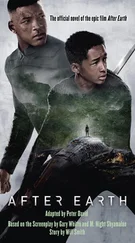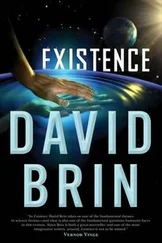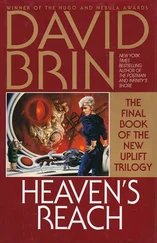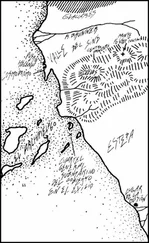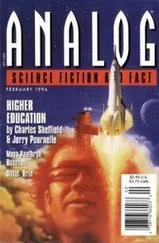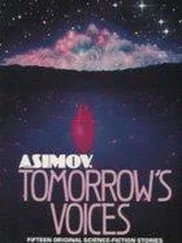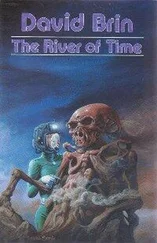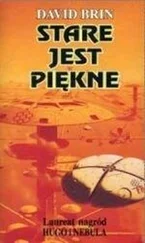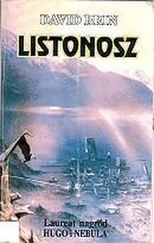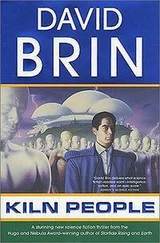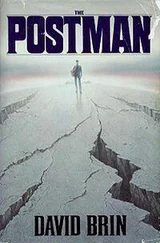Had anybody else spoken as she had, at last week’s World Ozone Conference in Patagonia, they would have returned home to more than mere letters and phone calls. In today’s political climate, the gentlest outcome might have been forced retirement. Good-bye lab in the city. Good-bye generous consultancies and travel allotments.
That little Swedish medal certainly did have its compensations. To become a laureate was a little like being transformed into that famous nine-hundred-pound gorilla — the one who slept anywhere it wanted to. Glimpsing her own tiny, wiry reflection in the laboratory window, Jen found the metaphor delicious.
“I only pointed out what any fool should see,” she explained. “That spending billions to blow artificial ozone into the stratosphere isn’t going to solve anything. Now that greedy idiots have stopped spewing chlorine compounds into the air, the situation will correct itself soon.”
“Soon?” Pauline was incredulous. “ Decades is soon enough to restore the ozone layer? Tell that to the farmers, who have to fit their livestock with eye covers.”
“Shouldn’t eat meat anyway,” Jen grumbled.
“Then tell all the humans who’ll get skin lesions because…”
“The U.N. supplies hats and sunglasses to everyone. Besides, a few pence worth of cream clears away pre-cancerous—”
“What about wild animals then? Savannah baboons were doing fine, their habitat declared safe just ten years ago. Now so many are going blind, they have to be collected into the arks after all. How do you think we’ll cope with that here?” Pauline gestured into the vast atrium of London Ark, with its tier upon tier of enclosed, artificial habitats. The huge edifice of hanging gardens and meticulously regulated environments was a far cry from its origins in the old Regent’s Park Zoo. And it was only one out of almost a hundred such structures, scattered all over the world.
“You’ll cope the way you have all along,” Jen answered. “By stretching facilities, putting in extra hours, making do—”
“For now! But what about tomorrow? The next catastrophe? Jen, I can’t believe I’m hearing this. You led the fight for the arks from the beginning!”
“So? Am I a traitor then, if I say that part of the job has succeeded? Why, in some places we’ve even made additions to the gene pool, like Baby here.” She nodded toward the furry pachyderm inside the big cage. “You should have faith in your own work, Pauline. Habitat restoration will come off the drawing boards someday. Most of these species should be back outside in only a few centuries—”
“Centuries!”
“Yes, surely. What’s a few hundred years, compared to the age of this planet?”
Pauline sniffed dubiously. But Jen cut in, putting on a touch of Cockney accent for good measure. “Cor, why d’ye take it all so bloody personally, dearie-o? Step back a minute. What’s the worst that can happen?”
“We could lose every unprotected terrestrial species massing over ten kilos!” the young woman replied fiercely.
“Yes? For good measure, let’s throw in the contents of these arks — the protected species — and every human being. All ten billion of us. That’d be some holocaust, to be sure.
“But how much difference would it make to the Earth , Pauline? Say, ten million years from now? Not much, I’ll wager. The old girl will wait us out. She’s done it before.”
Pauline’s mouth was slack, her expression stunned. For a moment Jen wondered if she’d really gone over the top, this time.
Her young friend blinked. Then a suspicious smile spread. “You are awful! For a minute there I actually started taking you seriously.”
Jen grinned. “Now… you know me better than that.”
“I know you’re an unrepentant curmudgeon! You live to get a rise out of people, and someday your contrary habits will be your undoing.”
“Hmph. Just how do you think I’ve remained interested in life this long? Finding ways to keep amused… that’s my secret of longevity.”
Pauline tossed the reading plaque back onto the cluttered desk. “Is that why you’re going to South Africa next month? Because it’ll outrage everybody on both sides?”
“The Ndebele want me to look over their arks from a macrobiological perspective. Whatever their politics and race problems, they are still vital members of the Salvation Project.”
“But—”
Jen clapped her hands. “Enough of that. It has nothing to do with our little project in stirpiculture, right here. Mammut americanum . Let’s have a look at Baby’s file, shall we? I may be retired, but I’ll bet I can still recommend a better neural factor gradient than the one you’re using.”
“You’re on! It’s in the next room. I’ll be right back.”
With a youthful grace that Jen watched lovingly, Pauline hurried out of the lab, leaving Jen to ponder alone the mysterious ways of ambiguity in language.
It was, indeed, a bad habit, this toying with people. But as the years flickered by it grew easier. They all forgave so, almost as if they expected it… demanded it of her. And because she tested everybody, taking contrary positions without prejudice, fewer and fewer people seemed to believe she meant anything she said at all!
Perhaps, Jen admitted honestly, that would be the world’s long-term revenge on her. To attribute everything she said to jest. That would be some fate for the so-called “mother of the modern Gaian paradigm.”
Jen stroked Baby’s trunk, scratching the bulging forehead where induced neoteny had given the elephant-mammoth hybrid an enlarged cortex. Baby’s brow-fur was long and oily, and gave off a pungent, tangy, yet somehow pleasant odor. The worldwide network of genetic arks had a surfeit of pachyderms, even this new breed — “Mammon-telephas” — with half its genes salvaged from a 20,000-year-old cadaver exposed by the retreating Canadian tundra. So many of them bred true, in fact, that there were some to spare for experiments in extended childhood in mammals. Under strict supervision by the science tribunals and animal rights committees, of course.
Certainly the creature seemed happy enough. “How about it, Baby?” Jen murmured. “Are you glad to be smarter than the average elephant? Or would you rather be out on the plains, rolling in mud, uprooting trees, complaining about ticks, and getting pregnant before you’re ten?”
The pink-tipped trunk curled around her hand. She stroked it, tenderly. “You’re awfully important to yourself, aren’t you? And you are part of the whole.
“But do you really matter, Baby? Do I?”
Actually, she had meant every word she said to Pauline — about how even mass extinctions would be essentially meaningless in the long run. A lifetime spent building the theoretical foundations of biology had convinced her of that. The homeostasis of the planet — of Gaia — was powerful enough to survive even great cataclysms.
Many times, sudden waves of death had wiped out species, genuses, even entire orders. Dinosaurs were only the most glamorous victims of one episode. And yet, across each murderous chasm, plants kept removing carbon dioxide from the air. Animals and volcanoes continued putting it back again, give or take a few percentage points.
Even the so-called greenhouse effect that had everyone worried — melting icecaps, spreading deserts, and driving millions before the rising seas — even that catastrophic outcome of human excess would never rival the great inundations following the Permian age.
Jen very much approved of the way everyone marched and spoke out and wrote letters these days, passing laws and designing technologies to “save the Earth” from twentieth-century errors. After all, only silly creatures fouled their own nests, and humanity couldn’t afford much more silliness. Still, she took her own, admittedly eccentric view, based on a personal, quirky, never-spoken identification with the living world.
Читать дальше

